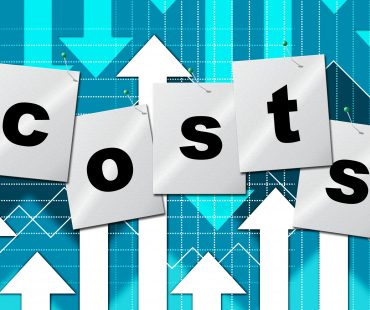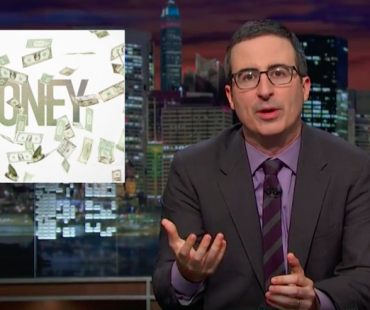(Article by Walter Updegrave on CNNMoney.com)
My husband and I would like to retire in the next few years. We have substantial savings, but we're still not sure whether we'll have enough to live on. Where can we find an adviser who can sit down with us, advise us but not give us a sales pitch and try to sell us a lot of things we don't need? --Kathleen, Texas
You've probably heard that after years of talking about it, the Department of Labor last week finally proposed rules requiring all financial advisers to act as a fiduciary -- essentially, avoid conflicts of interest and act in your best interest -- when giving people retirement advice. Previously, only registered investment advisers have had to meet a fiduciary standard.
I would like to be able to tell you that this solves your problem of finding an honest (and competent) financial adviser who will put your financial well-being ahead of his. But I can't. For one thing, the new rules won't start to go into effect until April 2017. And even when they do, they'll cover only assets in retirement accounts like 401(k)s and IRAs. Savings held in regular taxable brokerage, mutual fund or savings accounts won't be covered by the new rules.
Most importantly, though, I don't believe any rule or regulation can guarantee integrity, competence or, for that matter, assure that you'll get your money's worth when paying a financial pro for assistance. For example, as a registered investment adviser, Ponzi scheme king Bernie Madoff owed a fiduciary duty to his clients. That didn't prevent him from stealing their dough.
I hope that this new rule will stem the peddling of inappropriate and egregiously expensive investments, rein in conflicts of interest and perhaps even save consumers money. But I think it would be Pollyana-ish to assume that will be the case, or to believe you should be any less vigilant when choosing a financial adviser because of this rule.
Fiduciary rule or no, and whether you work with an adviser or not it's ultimately on you to safeguard your retirement nest egg.
So how do I recommend you proceed?
Start by thinking hard about exactly what sort of help you want, as that can narrow down the type of adviser you need and also prevent you from getting sidetracked by a sales pitch for products or services you don't want.
It sounds like you already know that you're primarily interested in having someone help you determine whether you're on track toward a secure retirement, and how much longer you might have to work before you can call it a career.
That's fine, but you might want to come up with a list of specific questions or issues you can go over in an initial consultation or interview with an adviser so that there's no mistake about the kind of advice and guidance you seek.
So in your case, some questions might be: If my husband and I retire in the next few years, will we have enough saved to be able to maintain our current lifestyle throughout a retirement that might last 30 or more years? If not, how many more years will we have to work to achieve that goal? Will we be able to weather a market setback -- or a large unexpected expense without jeopardizing our financial security? When should each of us claim Social Security Benefits?
In dealing with these questions, other issues might very well come up, such as whether your savings are invested appropriately to generate the retirement income you'll need. But by outlining ahead of time the areas you're most concerned about, you'll have a better chance at evaluating whether different advisers are responding to your needs or pushing their own agenda.
There are plenty of advisers out there who can talk a good game about retirement planning and creating a retirement income plan. But if you really want to know whether or not you're on track to call it a career, you don't want a glib talker or sales type. You want an adviser who's capable of doing the nitty-gritty analysis and number-crunching necessary to make such an assessment. For the most part, that probably means dealing with a financial planner who holds a Certified Financial Planner (CFP) or Chartered Financial Consultant (ChFc) designation, both of which require an adviser to meet rigorous professional standards.
That said, you shouldn't make a decision based on credentials alone (or let yourself be awed by a long string of impressive-sounding designations). I'd ask to see the sort of analysis the adviser has done for clients in similar situations to get a better idea of how comprehensive his plans are and what sort of recommendations they involve.
Inquire too about follow-up. How will you know his advice is working? How will you measure progress? While you're at it, get a few references from current clients who have worked with the adviser on the types of issues you and your husband are facing.
You'll also want to vet the adviser to see whether he's had run-ins with financial regulators and/or left a trail of disgruntled customers. A recent study titled "The Market For Financial Adviser Misconduct" shows not only that such problems occur frequently enough to merit concern, but that some advisers are serial offenders, moving from firm to firm.
You can find plenty of helpful resources on how to examine an adviser's background, including links to regulators' websites, by going to the Check Out A Broker or Adviser section of the SEC's site.
Of course, you'll also want to know how much the adviser's advice is going to cost you. Advisers can be compensated in a variety of ways. Some charge a fee for their advice (typically a percentage of assets under management), others get a sales commissions for the products they sell and some receive a combination of fees and commissions. A minority of advisers are willing to work for an hourly fee. Generally, I think the fee-for-advice arrangement has less potential for abuse and conflicts of interest (and I expect will become more prevalent as the DOL's fiduciary rule kicks in).
You can find planners willing to work for a fee, commissions or a combination of the two at the Financial Planning Association site. The National Association of Personal Financial Advisors can direct you to fee-only planners, and the Garrett Planning Network has a roster of planners you can hire on an hourly basis.
Whatever compensation method you go with, I recommend getting a detailed estimate of all charges in writing. By comparing costs from one adviser to another, you can make a more informed decision about which adviser offers the best value. And having such information may even help you negotiate for a better deal.
Finally, you need to broach the subject of conflicts of interest with any adviser you're considering. The primary goal of the new fiduciary rule is to require advisers to put their clients' interests first. And I fully expect that many advisers will use the new rule as a way to market themselves: "I'm a fiduciary. I'm the good guy. You don't have to worry about getting ripped off. The law requires that I put your interests ahead of mine."
At the risk of sounding cynical, I don't believe any adviser can totally put a client's interests first. For example, a fiduciary adviser who eschews sales commissions in favor of charging an annual percentage-of-assets fee to manage your investment portfolio might rightly note that he's eliminated an inherent conflict of interest associated with commissions -- namely, that the adviser might steer you to high-commission products that are better for his bottom line than yours.
But the fee-for-advice model also has inherent conflicts. The adviser has an incentive to charge that same percentage fee year after year, increasing the adviser's income as your portfolio's value rises even if the services provided remain largely the same. Or the adviser might be reluctant to recommend products, such as bank CDs or an immediate annuity, or engage in strategies, such as paying off mortgage debt, that reduce the value of assets under his management and thus lower his annual fee.
So before hiring an adviser, ask him to detail the potential conflicts in your relationship and have him explain how he'll manage them to your benefit. And never assume that just because an adviser is a fiduciary that you're getting the best deal. Fiduciary advisers' fees can vary widely, so it's still up to you to shop around to ensure you're not paying more than necessary for the advice you seek.
Clearly, you'll have to allow some time to think about these issues, identify potential advisers and then do your due diligence on them. But given that the retirement stash it took you an entire career to accumulate is at stake, this is definitely a process you don't want to rush.
남편과 저는 몇 년 후에 은퇴를 하고자 합니다. 우리는 상당한 금액을 모으긴 했지만, 그게 은퇴자금으로 충분한지는 모르겠습니다. 우리에게 필요하지 않은 금융상품을 판매하려하기 보다 우리를 위해 진정한 조언을 해 줄 수 있는 재무설계사를 어떻게 찾을 수 있을까요?
님 께서도 아마 노동부 (Department of Labor)에서 지난주에 모든 재무설계사들이 상담시 신탁 의무 (fiduciary) - 이해 충돌 (conflicts of interest) 없이 고객의 이익만을 위해야 하는 의무 -를 이행해야 한다는 법 조항을 몇 년간의 논의 끝에 드디어 발의한것에 대해 들어 보셨을겁니다. 그동안은 등록된 투자 상담사 (registered investment advisers)들에게만 요구되던 조항 이었지요.
이 조항이 재무설계사 스스로의 이익 보다 당신의 이익을 최우선으로하는 정직한 (그리고 자질 있는) 재무설계사를 찾는 문제를 해결할 수 있을거라고 말할 수 있었으면 좋겠습니다. 그러나 그렇게 말 할 수 없습니다. 왜냐하면 우선, 이 조항은 2017년 4월 부터 시행 됩니다. 그리고 시행이 되더라도, 401(k)와 IRA등 은퇴계좌에만 해당이 됩니다. 일반 투자계좌나 (regular taxable brokerage) 뮤추얼 펀드, 그리고 저축계좌에는 해당이 되지 않습니다.
무엇 보다 가장 중요한건, 나는 이런 법이 개인의 정직함이나 자질, 또는 당신이 내게될 비용에 대한 값어치를 할 거라는 보장을 할 수는 없다고 믿습니다. 예를 들어, 폰지 스킴 (Ponzi scheme-피라미드식 사기 수법)의 대가인 버니 메이도프 (Bernie Madoff) 도 등록된 투자 상담사로서 (registered investment adviser) 고객의 이익을 최우선으로 해야 하는 신탁의 의무 (fiduciary duty )가 있었거든요. 그 법 조항은 그가 고객의 자산을 훔치는걸 막지 못했지요.
나는 이 새로운 법이 부적절하고 끔찍히도 비싼 금융상품이 유포되는걸 막고 이해 충돌 (conflicts of interest)을 줄이며 더불어 고객이 비용을 절약할 수 있도록 하기를 바랍니다. 그러나 그럴거라고 믿는건 너무 순진한 일이며, 이 법 만 믿고 좋은 재무설계사를 찾는데 게을리 해서는 절대로 안 된다고 믿습니다.
신탁 의무 조항의 유무를 막론하고 재무설계사와 일을 하던 말던, 당신의 은퇴자산을 지키는건 온전히 당신의 의무 입니다.
그럼, 이제 어떻게 해야할까요?
당신에게 필요한 도움이 무엇인지를 먼저 생각해 보십시오. 그러면 불필요한 금융상품이나 상담을 제공하는 사람을 피함으로써 당신에게 필요한 재무설계사를 찾는 선택의 폭을 줄일 수 있습니다.
님의 글로 볼때, 님 께서는 현재의 은퇴자금이 충분한지, 그리고 은퇴전 얼마나 더 일을 해야 하는지에 대한 상담이 필요하다고 판단한 듯 합니다.
그것도 좋지만, 초기 상담시 당신이 원하는 부분이 정확히 전달될 수 있도록 짚고 넘어갈 질문이나 이슈들을 적어 보십시오.
님의 경우, '남편과 내가 몇년 후에 은퇴 한다면 우리는 과연 30년이 될지도 모르는 은퇴 기간 동안 우리의 라이프 스타일을 유지할 충분한 은퇴 자금이 있는지, 만약 그렇지 않다면, 얼마나 더 일을 하는게 좋을지, 주식 시장이 하락하거나 우리가 기대치 않았던 큰 지출이 발생해도 그 경제적 충격을 견딜수 있는지, 언제 소셜시큐리티 연금을 수령할지...' 등등이 되겠지요.
이런 질문을 하는 과정에서 과연 은퇴후 필요한 자금이 수월하게 나오도록 자산이 현재 적절하게 투자 되었는지와 같은 다른 질문들도 오게 될겁니다. 그러나 당신이 염려되는 부분에 대한 문제를 미리 적어봄으로써 초기 상담을 하는 재무설계사들이 그들의 이익을 위해서 일을하는지 아니면 당신의 필요한 부분을 잘 도와줄 수 있는지에 대한 검증을 하기가 더 쉬워지지요.
은퇴 설계와 은퇴후 생활 자금을 어떻게 마련할 것인지에 대해 멋진 대화를 할 수 있는 재무설계사는 많습니다. 그러나 당신이 진정 은퇴를 할 준비가 되어 있는지에 대해 알고 싶으면 달변가나 세일즈맨 같이 말을 잘 하는 사람이 필요한게 아닙니다. 당신에게 필요한 사람은 당신의 상황을 정확히 분석하고 꼼꼼히 계산을 할 수 있는 사람입니다. 그런 사람은 아마도 엄격한 기준이 요구되는 CFP (Certified Financial Planner )나 ChFc (Chartered Financial Consultant)를 취득한 사람이어야 할겁니다.
그렇다고 재무설계사가 소지하고 있는 자격증의 숫자나 자격증 그 자체만을 기준으로 사람을 찾으라고 하는것은 아닙니다. 재무설계사가 당신과 비슷한 상황에 있는 고객들에게 어떤 조언을 했는지를 알아보면 그 사람의 조언이 얼마나 포괄적인지를 알아볼 수 있습니다.
해당 재무설계사의 조언이 과연 효과가 있었는지도 알아 보아야 합니다. 재무설계사의 조언이 효과가 있었는지 어떻게 알아 볼 수 있냐구요? 해당 재무설계사에게서 당신과 당신 남편과 비슷한 상황에 있었고 그로 부터 상담을 받은 고객 몇 명을 소개 받으십시오.
또한 재무설계사에게 불만이 있는 고객이 있거나 감독기관으로부터 지적을 받은 사례가 있는지도 알아 보아야 합니다. "The Market For Financial Adviser Misconduct"라는 자료에 의하면, 재무설계사의 위법행위 문제는염려될 정도로 흔히 일어날 뿐만 아니라, 어떤 재무설계사들은 여러 회사를 옮기며 상습적으로 범법을 저지르기도 한다고 합니다.
증권관리 위원회 (SEC) 웹사이트에서 Check Out A Broker 나 Adviser 섹션을 통해 재무설계사의 배경이나 어떻게 재무설계사들을 검증할 수 있는지에 많은 자료를 볼 수 있습니다.
물론, 재무설계사의 상담 비용이 얼마나 드는지도 당연히 알아야 합니다. 재무설계사들은 여러가지 방법으로 돈을 벌 수 있습니다. 어떤 사람들은 투자자산의 몇 퍼센트를 받기도 하고 어떤 사람들은 금융상품을 판매함으로써 커미션을 받기도 하고, 또는 두가지 모두 받기도 합니다. 소수의 재무설계사는 시간당 비용을 받기도 합니다. 나는 상담료만 받는 (fee-for-advice)재무설계사들이 고객의 자산을 유린하거나 이해 충돌의 가능성이 적다고 생각합니다 (또한 그런 형태의 수수료를 받는 재무상담사들이 앞으로 노동부의 법조항이 행됨과 동시에 늘어나게 될거라고 기대 합니다.)
투자 자산의 %를 받거나, 커미션이나 혼합 형태의 비용을 받는 사람들을 Financial Planning Association 웹사이트에서 조회할 수 있습니다. NAPFA (The National Association of Personal Financial Advisors)에서는 상담료만 받는 재무설계사들을 조회할 수 있으며, Garrett Planning Network에서는 시간당 수수료를 받는 재무설계사도 찾아볼 수 있습니다.
어 떤 형태의 비용을 받는 재무설계사를 고용하는지와 별도로, 비용에 대한 자세한 정보는 서류로 받아 두십시오. 그래야 다른 재무설계사들과의 서비스와 비용의 비교가 가능하고 정확한 정보를 바탕으로 누가 비용 대비 가치가 더 많은지를 선택을 할 수 있습니다. 그런 정보를 갖고 있는것이 재무설계사와의 비용 협상에 되움이 될 수도 있습니다.
끝으로, 고려하고 있는 재무설계사의 이해 충돌 (conflicts of interest)에 대해 꼼꼼히 따져 보아야 합니다. 이번에 새로 발의된 신탁 조항 (fiduciary rule)은 재무설계사들이 고객의 이익을 최우선으로 하도록 하기 위한것이 목적 입니다. 그러므로 많은 재무설계사들이 앞으로 "나는 fiduciary 입니다. 나는 좋은 사람 이예요. 나한테 사기당할 염려는 없어요. 왜냐면 나는 법적으로 당신의 이익을 최우선으로 해야할 의무가 있기 때문이지요" 라고들 하며 이 새 조항을 마케팅 자료로 이용 할거라 생각 합니다.
누굴 의심 해서가 아니라, 나는 사람은 누구나 자신의 이익 보다 고객의 이익만을 항상 우선으로할 수 있다고는 믿지 않습니다. 예를 들어, 커미션 대신 투자자산의 %를 비용으로 받는 어드바이저가 스스로가 돈을 더 벌 수 있는 커미션이 높은 금융상품을 추천하지 않았으므로 고객에게 더 이익을 주었다고 말 할 수 있습니다. 그러나 그렇게 자산의 %를 받는 어드바이저도 이해 충돌의 문제가 있습니다. 왜냐하면 서비스가 비슷하고 어드바이저가 해마다 같은 %를 비용으로 받더라도 고객의 자산이 늘어날수록 그가 버는 돈의 액수는 많아질 수 밖에 없기 때문이지요. 또한, 어드바이저가 고객에게 은행의 CD나 즉시 상환 연금 보험 (immediate annuity), 또는 모기지 잔금을 상환하라는 조언등을 꺼려할 수도 있습니다. 자신이 관리하는 고객의 자산이 줄어들면 자기가 버는 수익이 줄어들 수 있기 때문이지요.
그러므로, 재무설계사를 고용하기전에 이해 충돌의 여부가 있는지와 있다면 그걸 고객에게 이익이 되도록 어떻게 관리할것인지등을 자세히 물어 보아야 합니다. 신탁의 의무 (fiduciary duty)가 있다고 님에게 좋은 상담사가 될거라고 믿지는 마세요. 그런 재무상담사들의 비용은 천차만별일 수 있으니, 님이 필요한 써비스보다 더 많은 비용을 내지 않도록 스스로 많이 알아 보아야 합니다.
물론, 이런 과정은 질문을 생각하고 잠재적인 재무설계사에 대해 알아보아야 하는등 시간이 걸리는 일 입니다. 그렇지만, 당신이 지금까지 은퇴자금을 모으는데 든 시간을 감안할때, 분명 조급히 결정할일이 절대 아닙니다.
(Article by Walter Updegrave on CNNMoney.com)



